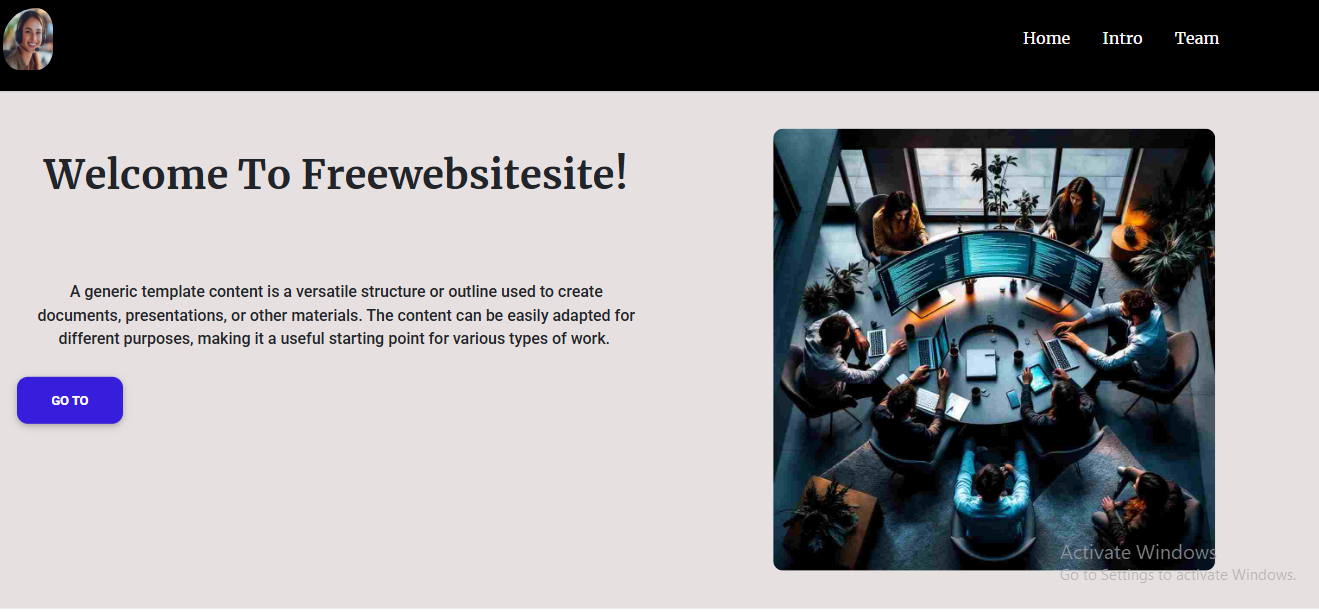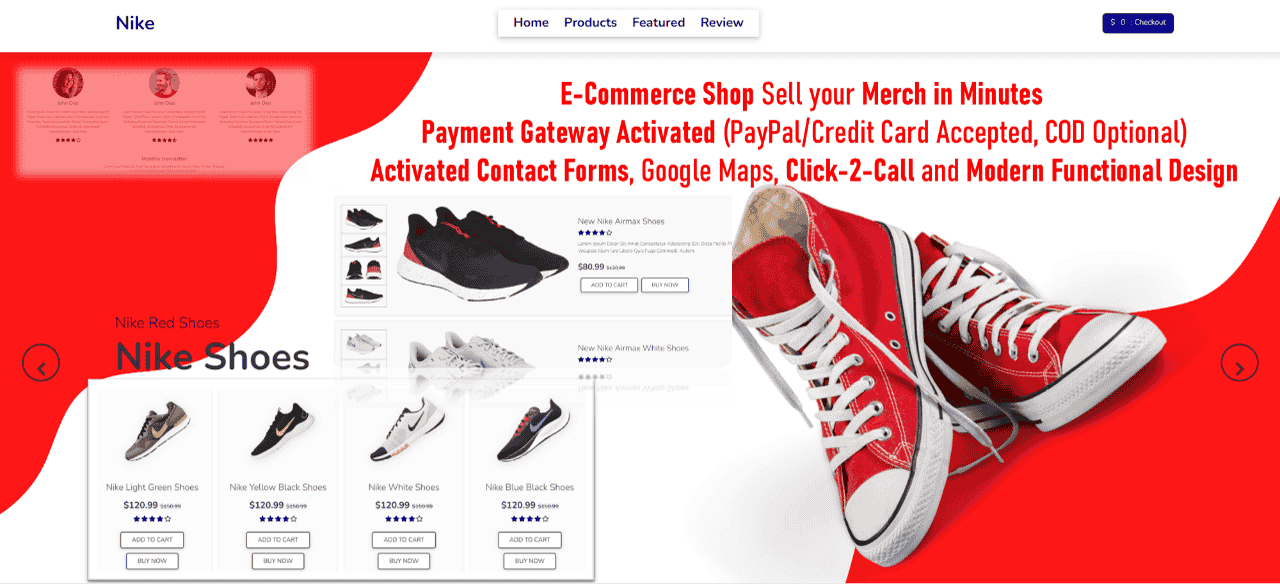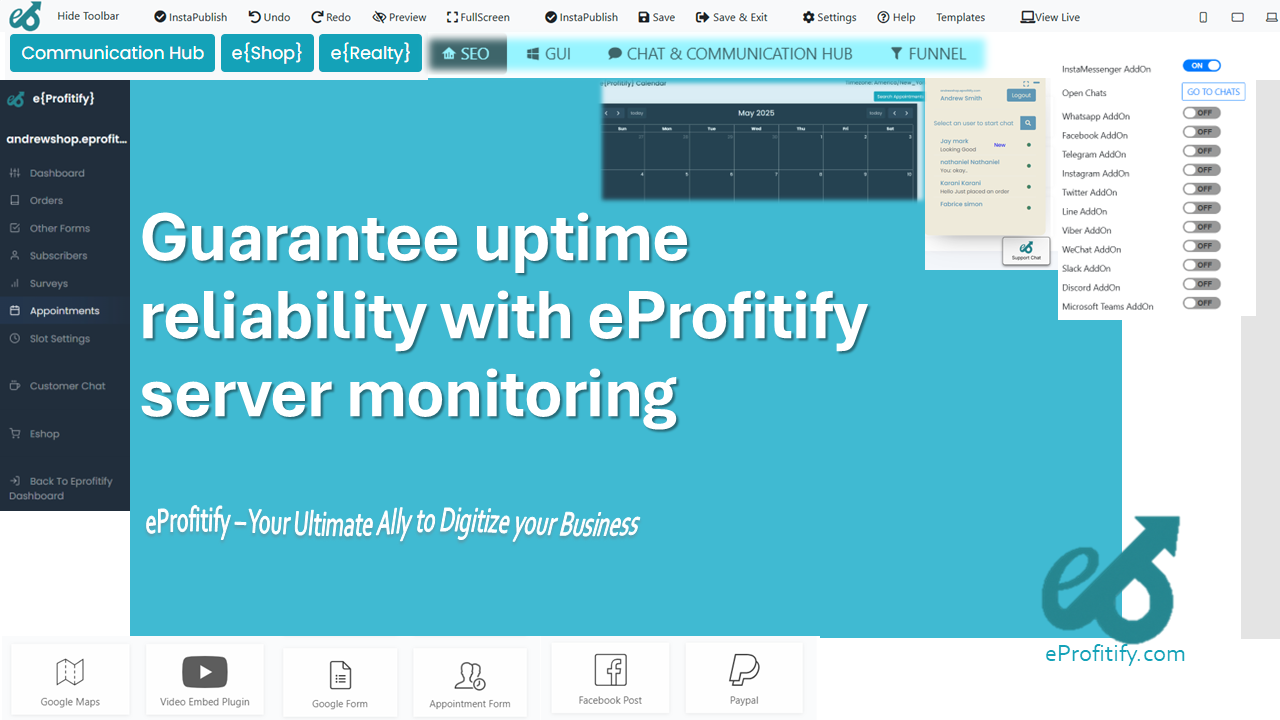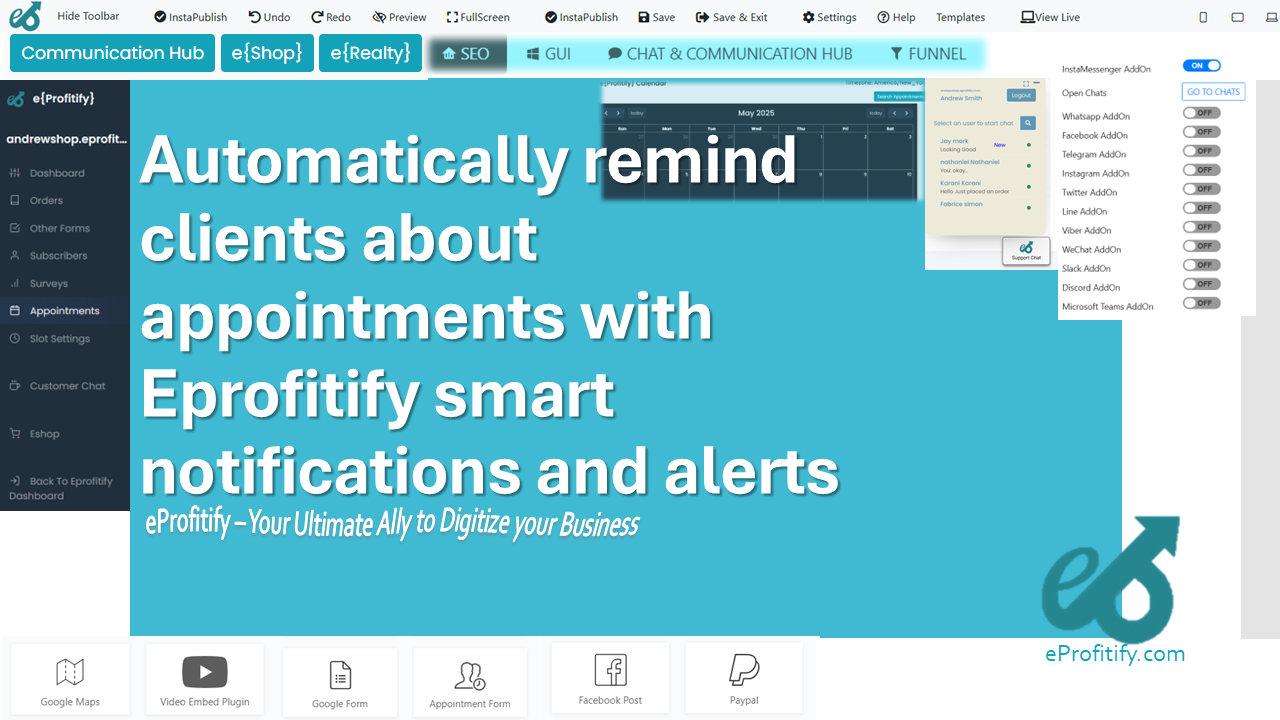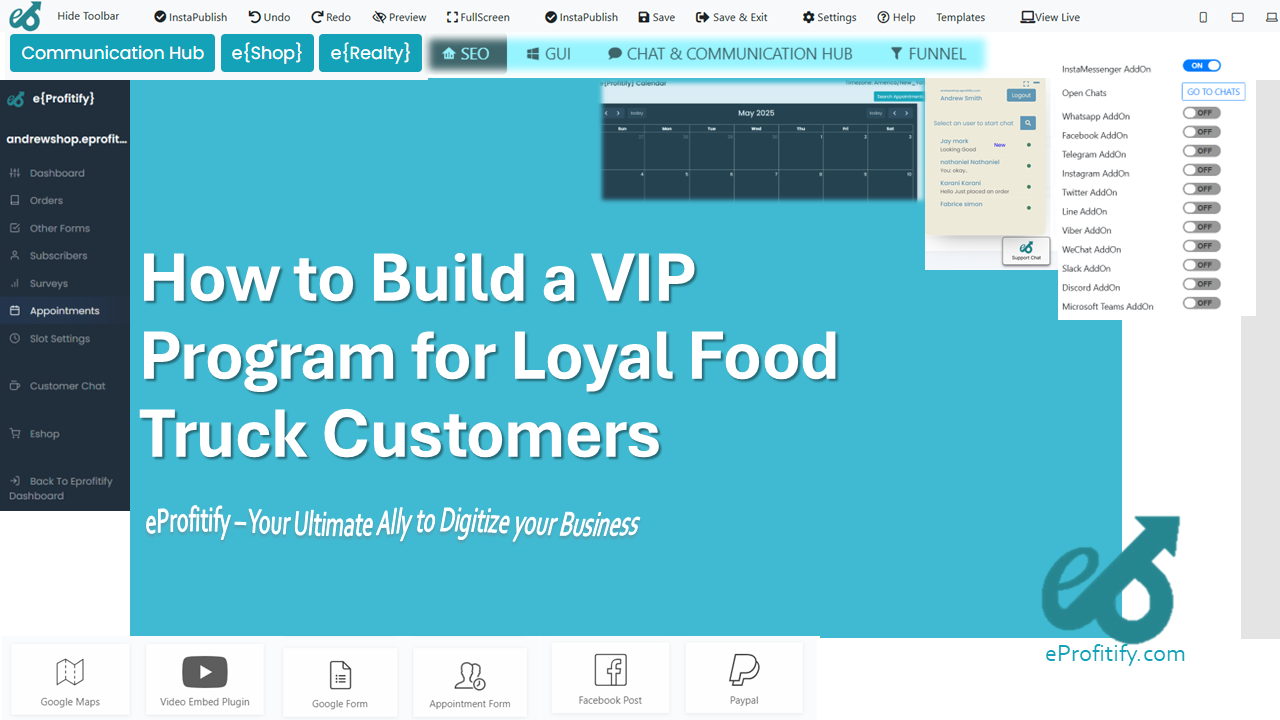How to Make Sure Your Business Name Is Easy to Spell
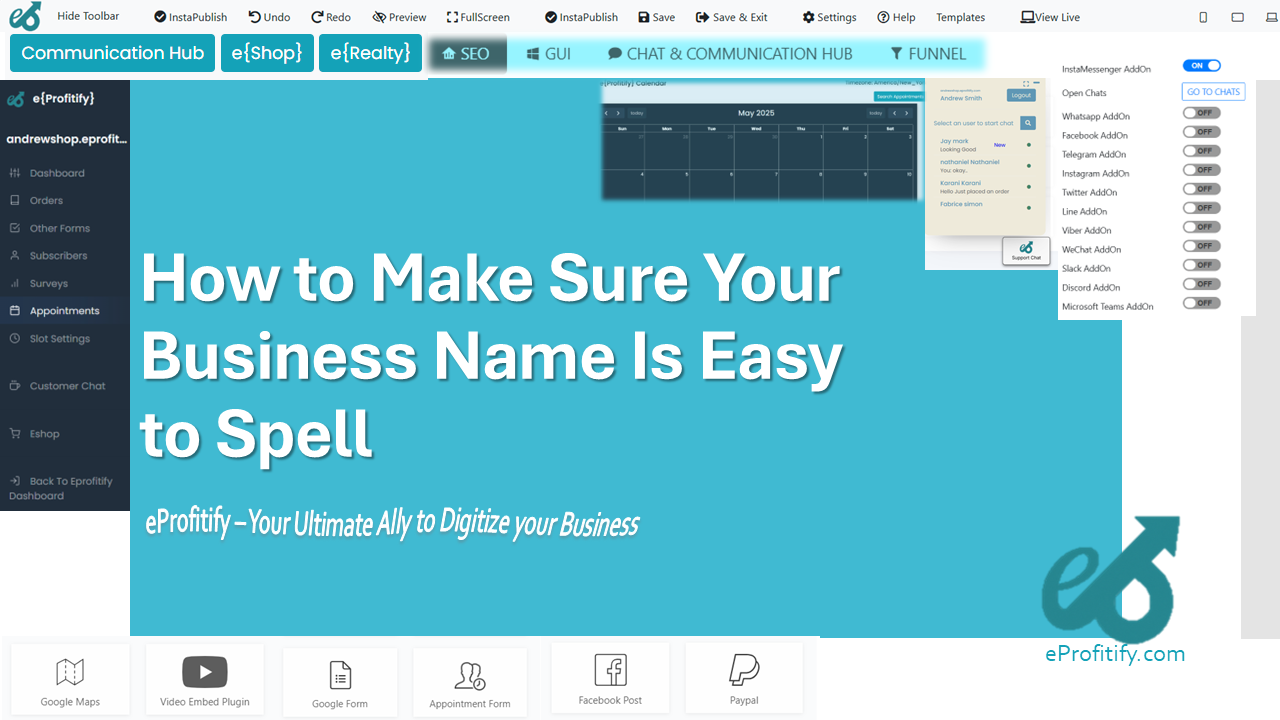
Schedule a LIVE Zoom call with an eProfitify Expert.
How to Make Sure Your Business Name Is Easy to Spell
Choosing a business name is one of the most critical decisions an entrepreneur faces. A well-crafted name can enhance brand recall, drive customer engagement, and foster trust. However, a poorly chosen name—particularly one that’s difficult to spell—can create barriers to discovery, reduce online visibility, and even alienate potential customers. Studies show that 77% of consumers rely on brand names to guide their purchasing decisions (Inc., 2022), underscoring the importance of simplicity and clarity. Below, we explore strategies to ensure your business name is easy to spell and memorable, alongside tools like eprofitify—a leading website publishing and management platform—that support long-term success.
Why Spelling Matters: Cognitive Fluency and Brand Recall
Cognitive fluency, the ease with which the brain processes information, plays a pivotal role in consumer behavior. Names that are simple to spell and pronounce are perceived as more trustworthy and approachable. A University of California study found that brands with phonetically simple names experienced a 33% higher customer retention rate compared to those with complex names. Conversely, businesses with hard-to-spell names risk losing potential clients: 50% of consumers admit they are less likely to engage with a brand if its name is difficult to spell or remember (Verisign, 2021).
For example, global giants like Google and Apple prioritize simplicity, ensuring their names are instantly recognizable across languages and cultures. Startups should emulate this approach, as 72% of businesses report higher website traffic after simplifying their names (GoDaddy, 2023).
Strategies for Selecting an Easy-to-Spell Business Name
-
Avoid Complex or Uncommon Words
Steer clear of jargon, obscure terms, or deliberate misspellings (e.g., “Kwik” instead of “Quick”). While these might seem creative, they confuse search algorithms and customers. A Nielsen report revealed that 64% of consumers struggle to locate businesses with non-intuitive spellings online. -
Prioritize Phonetic Clarity
Ensure the name sounds exactly as it is spelled. Words like “Sea” instead of “Cee” reduce ambiguity. This is particularly vital for voice search optimization, as 60% of web searches now occur via mobile devices (BrightLocal, 2023), where voice assistants rely on phonetic accuracy. -
Check Domain and Social Media Availability
Secure a matching domain name and social handles to maintain consistency. Businesses with aligned domains see a 45% higher conversion rate (HubSpot, 2022). Tools like GoDaddy or Namecheap can help verify availability. -
Test with Your Target Audience
Conduct surveys or focus groups to identify spelling hurdles. A Shopify study found that brands testing names with 100+ participants reduced customer confusion by 58%. -
Consider Cultural and Linguistic Nuances
Avoid unintended meanings in other languages. For instance, “Nova” translates to “no go” in Spanish—a lesson learned by Chevrolet in the 1970s.
Leveraging Technology: How eprofitify Supports Business Success
Once a business name is chosen, operational tools like eprofitify ensure seamless management and growth. As a comprehensive platform, eprofitify integrates features that complement your easy-to-spell brand name:
- Instant Messaging: Facilitate real-time customer interactions, reinforcing brand accessibility.
- Appointment Management: Streamline bookings, enhancing user experience and retention.
- Ecommerce Tools: Build a cohesive online storefront that aligns with your brand’s simplicity.
- CRM Integration: Track customer interactions to refine branding strategies.
Businesses using eprofitify report 30% faster workflow automation and 20% higher customer satisfaction rates due to its intuitive interface.
Conclusion
An easy-to-spell business name is foundational to visibility and trust. By prioritizing phonetic clarity, testing rigorously, and securing digital assets, businesses can avoid costly pitfalls. Platforms like eprofitify further amplify success by offering tools that streamline operations, ensuring your well-chosen name becomes synonymous with efficiency and reliability. In an era where 39% of consumers discover brands via social media (Yodelay, 2023), simplicity and smart technology are the keys to longevity.
